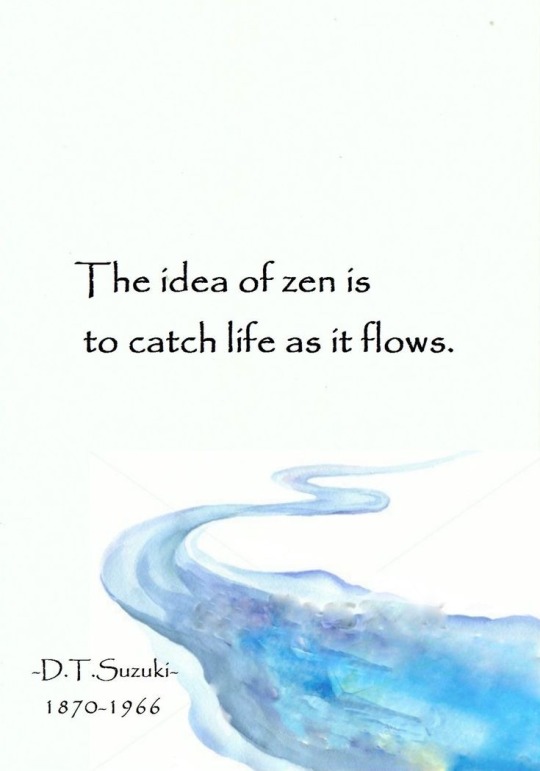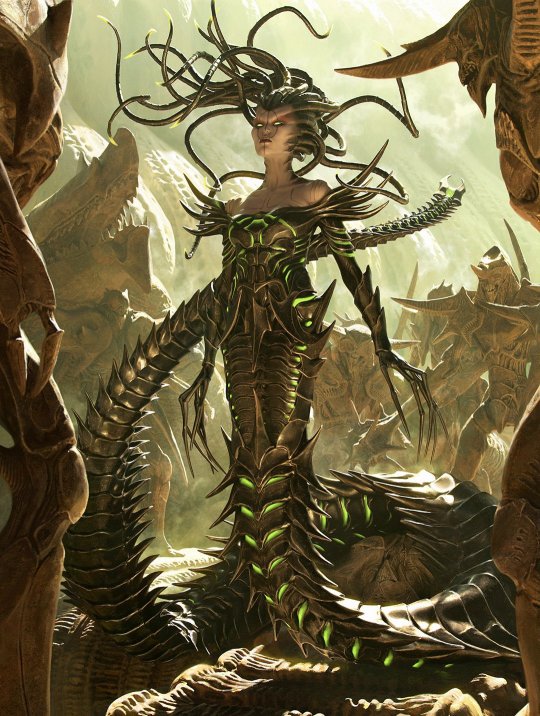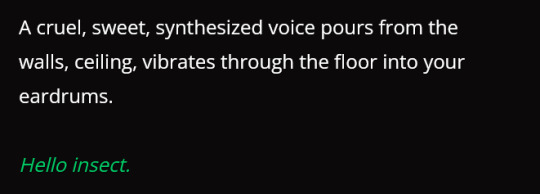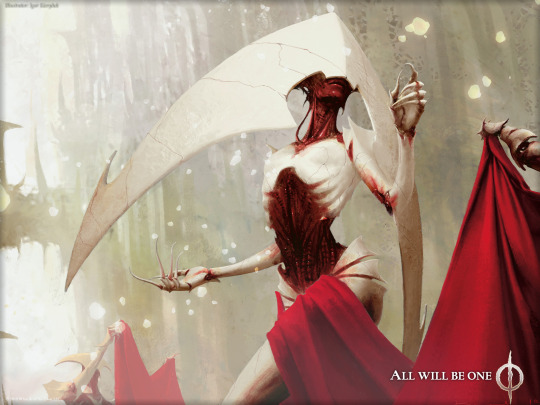#superad
Explore tagged Tumblr posts
Text
Interpretation takes the sensory experience of the work of art for granted, and proceeds from there. This cannot be taken for granted, now. Think of the sheer multiplication of works of art available to every one of us, superadded to the conflicting tastes and odors and sights of the urban environment that bombard our senses. Ours is a culture based on excess, on overproduction; the result is a steady loss of sharpness in our sensory experience. All the conditions of modern life—its material plenitude, its sheer crowdedness—conjoin to dull our sensory faculties. And it is in the light of the condition of our senses, our capacities (rather than those of another age), that the task of the critic must be assessed.
Susan Sontag, Against Interpretation
108 notes
·
View notes
Text
That Chris Storer quote where he said "it's a partnership you'll" see is probably the surest confirmation to me that this is a love story.
I just wanna know if Storer is a Thomas Hardy fan because, for all the beautiful romances in classic literature, the one between Bathsheba and Gabriel in Far From the Madding Crowd is my favourite.
Theirs is a love slowly built, with false starts, angry splits, romantic rivals, but in the end they end up happy and together because they truly understand each other, help each other, overcome their own insecurities for each other; in short, they are friends + and in many ways comrades foremost.
Right at the end, as Gabriel and Bathsheba finally realise they have not and could not love anyone else, Hardy writes this beautiful passage "theirs was that substantial affection which arises (if any arises at all) when the two who are thrown together begin first by knowing the rougher sides of each other's character, and not the best till further on, the romance growing up in the interstices of a mass of hard prosaic reality. This good-fellowship—camaraderie—usually occurring through similarity of pursuits, is unfortunately seldom superadded to love between the sexes, because men and women associate, not in their labours, but in their pleasures merely. Where, however, happy circumstance permits its development, the compounded feeling proves itself to be the only love which is strong as death—that love which many waters cannot quench, nor the floods drown, beside which the passion usually called by the name is evanescent as steam."
Syd and Carmy have seen the worst of each other but they keep coming back, trying harder to be better for each other and themselves - theirs is romance that is growing in the interstices of hard reality - of course they'll end up together and of course it could only ever have been this way.
#the bear meta#the bear fx#it's a partnership which means#fleabag voice:#this is a love story#sydcarmy#carmy x sydney#carmy berzatto#sydney adamu#the bear hulu#far from the madding crowd
89 notes
·
View notes
Text

The basic idea of Zen is to come in touch with the inner workings of our being, and to do so in the most direct way possible, without resorting to anything external or superadded.
— D.T. Suzuki, An Introduction to Zen Buddhism
20 notes
·
View notes
Text
The basic idea of zen is to come in touch with the inner workings of our being, and to do this in the most direct way possible, without resorting to anything external or superadded. Therefore, anything that has the semblance of an external authority is rejected by zen. Absolute faith is placed in a man's own inner being. For whatever authority there is in zen, all comes from within.
An Introduction to Zen Buddhism
Daisetz Teitaro Suzuki
17 notes
·
View notes
Text
There is no hopelessness so sad as that of early youth, when the soul is made up of wants, and has no long memories, no superadded life in the life of others; though we who look on think lightly of such premature despair, as if our vision of the future lightened the bling sufferer's present.
The Mill on the Floss, George Eliot
13 notes
·
View notes
Text
. . . [We] fail to take account of our psychological peculiarities and characteristics. We are ordinarily entirely ignorant about them, unconscious even that they exist. Or if a dim awareness of our psychological lack comes to us we turn away from fuller knowledge. For as in Wells' "Country of the Blind" it is taboo to see more than other people. These subjective factors, however, are potent psychical entities, they belong to the totality of our being, they cannot be destroyed. We may ignore them, repress them, but they continue to exist. So long as they are unrecognized outcasts from our conscious life, they will come between us and all the objects we view, and our whole world will be either distorted or illuminated by the superadded subjective factor. Thus the object is altered so that what we perceive is never really the object itself but always our view of the object. The scientific method deals with this dilemma by eliminating the subjective and psychological factors as far as possible and then concerning itself with the objective or relatively objective data which remain.
Such a process excludes the human element and results necessarily in a mechanical concept of life. Indeed it produced the machine age where value was largely measured in terms of available physical energy. Yet if this is so it is strange to recall how satisfied our predecessors were with this mechanistic view of life, for we in the present generation are increasingly dissatisfied with it. Those men of the nineteenth century had an enthusiasm for science, for objective or factual truth which was religious in its intensity. There was nothing mechanistic about them, in spite of their own theories. Their concern with scientific truth was like a new faith. The explanation for this lies in the fact that during the phase of mechanical expansion their living spirit was occupied with devising ever more and more ingenious methods of conquering ever wider fields, in which their scientific ingenuity could find scope. In other words, the enterprise they were really concerned with was the expansion of their own powers and the increase of conscious control of the objective world. Their aim was, unknown to themselves, a psychological one. They were really concerned with the subjective factor, though this they did not realize. For that which they thought they had eliminated so carefully had escaped their observation and once again motivated their enthusiasm.
Our dissatisfaction has been emphasized by the world problems of the past few years, during which it has become more and more evident that happiness and the fullness of life are not to be found through mass production and the discovery of new sources of energy supply. This dissatisfaction shows itself not only in general anxiety but also in neurosis and unhappiness, and in a sense of frustration, a lack of any real enthusiasm. In particular, are we dissatisfied with the character and quality of our human relationships. Our fathers were either able to make more satisfactory relationships than we are, or they were less sensitive to disharmony and ennui. Whatever the reason, there is no doubt about the large part unhappiness and neurosis, dependent on unsatisfactory human relationships, plays in the dissatisfaction with life from which so many people suffer. The life of today is empty and sterile and we look for renewal, whether we want to or not, from that source of spiritual awakening which lies within. For our science has proved itself strangely impotent in face of a threatened breakdown in our culture.
-M. Esther Harding, Woman’s Mysteries: Ancient and Modern
3 notes
·
View notes
Text
CHAPTER IV—MISS EVANS AND THE EAGLE
Mr. Samuel Wilkins was a carpenter, a journeyman carpenter of small dimensions, decidedly below the middle size—bordering, perhaps, upon the dwarfish. His face was round and shining, and his hair carefully twisted into the outer corner of each eye, till it formed a variety of that description of semi-curls, usually known as ‘aggerawators.’ His earnings were all-sufficient for his wants, varying from eighteen shillings to one pound five, weekly—his manner undeniable—his sabbath waistcoats dazzling. No wonder that, with these qualifications, Samuel Wilkins found favour in the eyes of the other sex: many women have been captivated by far less substantial qualifications. But, Samuel was proof against their blandishments, until at length his eyes rested on those of a Being for whom, from that time forth, he felt fate had destined him. He came, and conquered—proposed, and was accepted—loved, and was beloved. Mr. Wilkins ‘kept company’ with Jemima Evans.
Miss Evans (or Ivins, to adopt the pronunciation most in vogue with her circle of acquaintance) had adopted in early life the useful pursuit of shoe-binding, to which she had afterwards superadded the occupation of a straw-bonnet maker. Herself, her maternal parent, and two sisters, formed an harmonious quartett in the most secluded portion of Camden-town; and here it was that Mr. Wilkins presented himself, one Monday afternoon, in his best attire, with his face more shining and his waistcoat more bright than either had ever appeared before. The family were just going to tea, and were so glad to see him. It was quite a little feast; two ounces of seven-and-sixpenny green, and a quarter of a pound of the best fresh; and Mr. Wilkins had brought a pint of shrimps, neatly folded up in a clean belcher, to give a zest to the meal, and propitiate Mrs. Ivins. Jemima was ‘cleaning herself’ up-stairs; so Mr. Samuel Wilkins sat down and talked domestic economy with Mrs. Ivins, whilst the two youngest Miss Ivinses poked bits of lighted brown paper between the bars under the kettle, to make the water boil for tea.
‘I wos a thinking,’ said Mr. Samuel Wilkins, during a pause in the conversation—‘I wos a thinking of taking J’mima to the Eagle to-night.���—‘O my!’ exclaimed Mrs. Ivins. ‘Lor! how nice!’ said the youngest Miss Ivins. ‘Well, I declare!’ added the youngest Miss Ivins but one. ‘Tell J’mima to put on her white muslin, Tilly,’ screamed Mrs. Ivins, with motherly anxiety; and down came J’mima herself soon afterwards in a white muslin gown carefully hooked and eyed, a little red shawl, plentifully pinned, a white straw bonnet trimmed with red ribbons, a small necklace, a large pair of bracelets, Denmark satin shoes, and open-worked stockings; white cotton gloves on her fingers, and a cambric pocket-handkerchief, carefully folded up, in her hand—all quite genteel and ladylike. And away went Miss J’mima Ivins and Mr. Samuel Wilkins, and a dress-cane, with a gilt knob at the top, to the admiration and envy of the street in general, and to the high gratification of Mrs. Ivins, and the two youngest Miss Ivinses in particular. They had no sooner turned into the Pancras-road, than who should Miss J’mima Ivins stumble upon, by the most fortunate accident in the world, but a young lady as she knew, with her young man!—And it is so strange how things do turn out sometimes—they were actually going to the Eagle too. So Mr. Samuel Wilkins was introduced to Miss J’mima Ivins’s friend’s young man, and they all walked on together, talking, and laughing, and joking away like anything; and when they got as far as Pentonville, Miss Ivins’s friend’s young man would have the ladies go into the Crown, to taste some shrub, which, after a great blushing and giggling, and hiding of faces in elaborate pocket-handkerchiefs, they consented to do. Having tasted it once, they were easily prevailed upon to taste it again; and they sat out in the garden tasting shrub, and looking at the Busses alternately, till it was just the proper time to go to the Eagle; and then they resumed their journey, and walked very fast, for fear they should lose the beginning of the concert in the Rotunda.
‘How ev’nly!’ said Miss J’mima Ivins, and Miss J’mima Ivins’s friend, both at once, when they had passed the gate and were fairly inside the gardens. There were the walks, beautifully gravelled and planted—and the refreshment-boxes, painted and ornamented like so many snuff-boxes—and the variegated lamps shedding their rich light upon the company’s heads—and the place for dancing ready chalked for the company’s feet—and a Moorish band playing at one end of the gardens—and an opposition military band playing away at the other. Then, the waiters were rushing to and fro with glasses of negus, and glasses of brandy-and-water, and bottles of ale, and bottles of stout; and ginger-beer was going off in one place, and practical jokes were going on in another; and people were crowding to the door of the Rotunda; and in short the whole scene was, as Miss J’mima Ivins, inspired by the novelty, or the shrub, or both, observed—‘one of dazzling excitement.’ As to the concert-room, never was anything half so splendid. There was an orchestra for the singers, all paint, gilding, and plate-glass; and such an organ! Miss J’mima Ivins’s friend’s young man whispered it had cost ‘four hundred pound,’ which Mr. Samuel Wilkins said was ‘not dear neither;’ an opinion in which the ladies perfectly coincided. The audience were seated on elevated benches round the room, and crowded into every part of it; and everybody was eating and drinking as comfortably as possible. Just before the concert commenced, Mr. Samuel Wilkins ordered two glasses of rum-and-water ‘warm with—’ and two slices of lemon, for himself and the other young man, together with ‘a pint o’ sherry wine for the ladies, and some sweet carraway-seed biscuits;’ and they would have been quite comfortable and happy, only a strange gentleman with large whiskers would stare at Miss J’mima Ivins, and another gentleman in a plaid waistcoat would wink at Miss J’mima Ivins’s friend; on which Miss Jemima Ivins’s friend’s young man exhibited symptoms of boiling over, and began to mutter about ‘people’s imperence,’ and ‘swells out o’ luck;’ and to intimate, in oblique terms, a vague intention of knocking somebody’s head off; which he was only prevented from announcing more emphatically, by both Miss J’mima Ivins and her friend threatening to faint away on the spot if he said another word.
The concert commenced—overture on the organ. ‘How solemn!’ exclaimed Miss J’mima Ivins, glancing, perhaps unconsciously, at the gentleman with the whiskers. Mr. Samuel Wilkins, who had been muttering apart for some time past, as if he were holding a confidential conversation with the gilt knob of the dress-cane, breathed hard-breathing vengeance, perhaps,—but said nothing. ‘The soldier tired,’ Miss Somebody in white satin. ‘Ancore!’ cried Miss J’mima Ivins’s friend. ‘Ancore!’ shouted the gentleman in the plaid waistcoat immediately, hammering the table with a stout-bottle. Miss J’mima Ivins’s friend’s young man eyed the man behind the waistcoat from head to foot, and cast a look of interrogative contempt towards Mr. Samuel Wilkins. Comic song, accompanied on the organ. Miss J’mima Ivins was convulsed with laughter—so was the man with the whiskers. Everything the ladies did, the plaid waistcoat and whiskers did, by way of expressing unity of sentiment and congeniality of soul; and Miss J’mima Ivins, and Miss J’mima Ivins’s friend, grew lively and talkative, as Mr. Samuel Wilkins, and Miss J’mima Ivins’s friend’s young man, grew morose and surly in inverse proportion.
Now, if the matter had ended here, the little party might soon have recovered their former equanimity; but Mr. Samuel Wilkins and his friend began to throw looks of defiance upon the waistcoat and whiskers. And the waistcoat and whiskers, by way of intimating the slight degree in which they were affected by the looks aforesaid, bestowed glances of increased admiration upon Miss J’mima Ivins and friend. The concert and vaudeville concluded, they promenaded the gardens. The waistcoat and whiskers did the same; and made divers remarks complimentary to the ankles of Miss J’mima Ivins and friend, in an audible tone. At length, not satisfied with these numerous atrocities, they actually came up and asked Miss J’mima Ivins, and Miss J’mima Ivins’s friend, to dance, without taking no more notice of Mr. Samuel Wilkins, and Miss J’mima Ivins’s friend’s young man, than if they was nobody!
‘What do you mean by that, scoundrel!’ exclaimed Mr. Samuel Wilkins, grasping the gilt-knobbed dress-cane firmly in his right hand. ‘What’s the matter with you, you little humbug?’ replied the whiskers. ‘How dare you insult me and my friend?’ inquired the friend’s young man. ‘You and your friend be hanged!’ responded the waistcoat. ‘Take that,’ exclaimed Mr. Samuel Wilkins. The ferrule of the gilt-knobbed dress-cane was visible for an instant, and then the light of the variegated lamps shone brightly upon it as it whirled into the air, cane and all. ‘Give it him,’ said the waistcoat. ‘Horficer!’ screamed the ladies. Miss J’mima Ivins’s beau, and the friend’s young man, lay gasping on the gravel, and the waistcoat and whiskers were seen no more.
Miss J’mima Ivins and friend being conscious that the affray was in no slight degree attributable to themselves, of course went into hysterics forthwith; declared themselves the most injured of women; exclaimed, in incoherent ravings, that they had been suspected—wrongfully suspected—oh! that they should ever have lived to see the day—and so forth; suffered a relapse every time they opened their eyes and saw their unfortunate little admirers; and were carried to their respective abodes in a hackney-coach, and a state of insensibility, compounded of shrub, sherry, and excitement.
_____
Title | Previous Chapter | Next Chapter |
0 notes
Note
Qué no funcionasen vuestros foros porque no sabéis administrar no da derecho a que echéis abajo el trabajo de otras personas. No. Esa tal Cox no es parte del staff de BD, ¿quién acosa a quién si la veis en cualquier esquina? Superad, pesadas. Evelyn y todo su grupo fue al final quienes siempre la acosaban o se intentaban meter en su grupo para sacarle info por si había hecho algo mal. Sorpresa para todos: Nunca lo hizo, sino el staff no habría tenido problema en banearla pero las pruebas iban contra su amiga Evelyn que nos acosó a más de uno y no hablemos de la pick me de Alma que la siguió.
Las pruebas siempre son importantes. B⊕REDOM
0 notes
Text






mewsuppasit instagram stories
WORLD’S BEST AIRPORT 2024
MEW ON BRASIL
💛💚
WELCOME MEW TO BR
MEWvisitsBrazil

mewsuppasit instagram a superad 6.2M de seguidores
#mewsuppasit#มิวศุภศิษฏ์#mewlions#mewsuppasit instagram stories#mew suppasit#Instagram#mew lindo#amor a mew 🐼#mewsuppasit21#Mew Suppasit#MSuppasit#MewSuppasit#actor y modelo cantante thai#MMewSuppasit#ChannelSuppasit#MEWvisitsBrazil#suppasitchannel#mewmewmew456 tiktok#ไอจีน้องมิว6ล้าน2แสน#mew de viaje
0 notes
Text
1 Chronicles 12: 4-7. "The Apex Pomegranate."

The Warriors Join David, Continued.
4 and Ishmaiah the Gibeonite, a mighty warrior among the Thirty, who was a leader of the Thirty; Jeremiah, Jahaziel, Johanan, Jozabad the Gederathite,[a]
The Gematria for 30 is "full-sized":
In the Mishna, the number thirty was the age of strength. The Mishna indicates that at the age of thirty, one has attained full strength.
Avoth Chapter 5 MISHNAH 21. HE USED TO SAY: FIVE YEARS [IS THE AGE] FOR [THE STUDY OF] SCRIPTURE, TEN-FOR [THE STUDY OF] MISHNAH, THIRTEEN-FOR [BECOMING SUBJECT TO] COMMANDMENTS, FIFTEEN-FOR [THE STUDY OF] TALMUD, EIGHTEEN- FOR THE [BRIDAL] CANOPY, TWENTY — FOR PURSUING, THIRTY-FOR [FULL] STRENGTH,[1] FORTY — FOR UNDERSTANDING, FIFTY- FOR [ABILITY TO GIVE] COUNSEL, SIXTY-FOR MATURE AGE, SEVENTY-FOR A HOARY HEAD, EIGHTY [IS A SIGN OF SUPERADDED] STRENGTH, NINETY [IS THE AGE] FOR [A] BENDING [FIGURE], AT A HUNDRED, ONE IS AS ONE THAT IS DEAD, HAVING PASSED AND CEASED FROM THE WORLD.
This power to begin transforming the world in earnest begins when we turn thirty. Up until that point we are in training. The Midrash Shmuel[2] states that one has the ability to guide and influence others for good at the age of thirty.
Ishaiah=the Husband of Yah
Gibeonite=at the peak
Jeremiah=trustworthiness with the truth, 'not swampy'
Jahaziel=window of vision
חזה
The verb חזה (haza) means to see or behold. Noun חזה (hozeh) means seer or visionary. Nouns חזות (hazot), חזות (hazut), חזיון (hizzayon) and מחזה (mahazeh) mean vision, anything between the mere act of seeing to experiencing a prophetic apparition. The noun מחזה (meheza) literally describes a place or instrument of vision and is the word for window.
Johanon=to be gracious
Jozabad=Yah has bestowed
Gederathite=prevents contaminants
��דר
The verb גדר (gadar) means to wall up; to build a wall to separate innies from outies, and to check any movement between the two. Curiously, this verb is used predominantly in a figurative sense, i.e. to describe a containment of thoughts, deeds, intentions or developments.
Trustworthiness with the facts and the disciplined use of the sciences this is expected of persons in leadership positions, the "Husbands of God." They are to be the very best, there is to be no slack, no thwarted expectations, no slurred words, no dips, valleys, or chasms in their terms office.
The Tanakh says they are insulate us from certain "contaminants", meaning leaders are to use "walls", the laws to sift religion out of the government, separate civil persons from the insane and inept, and enact policy initiatives that keep hazards out of the way.
Our world looks accident prone because we don't employ leaders the way we should, and they don't employ us in the ways they should.
When was the last time you heard a President of the United States of America tell the people he expected us to be sane, rational, lawful, friendly, kind, and regal in our behavior at all times?
The window of the vision has clear glass on both sides.
5 Eluzai, Jerimoth, Bealiah, Shemariah and Shephatiah the Haruphite;
Eluzai=God is my refuge
Jerimoth="Apex Pomegranate"
רום
The verb רום (rum) means to be high or high up in either a physical, social or even attitudinal sense, and may also refer to the apex in a natural process: the being ripe and ready-for-harvest of fruits.
The important noun רמון (rimmon) means pomegranate and the pomegranate became the symbol for harvest-ready fruit (see our full dictionary article for more on this). Overripe items might suffer the noun רמה (rimma), worm or maggot, or the verb רמם (ramam), to be wormy.
Bealiah="Yah is the Landlord"
Shemariah=Yah watches over
Shephatiah= Yah rules
שפט
The verb שפט (shapat) means to judge or govern. Nouns שפט (shepet) and שפוט (shepot) mean judgment in the penal sense. Noun משפט (mishpat) denotes a ruling in a general sense; an ordinance or even custom or manner.
Haruphite=to harvest
חרף
The verb חרף (harap) means to pluck or gather and an identical verb means to taunt, which suggests that there might be just one verb that demonstrates that taunting someone with sharp remarks is rather the same thing as harvesting an orchard with sharp tools.
Noun חרף (horep) means a (fruit-)gathering or harvest. It's often used to indicate the harvest season as time of the year, corresponding to our early autumn. The denominative verb חרף (harap) means to spend the harvest time (much alike our verb "to winter").
6 Elkanah, Ishiah, Azarel, Joezer and Jashobeam the Korahites;
Elkanah=God has acquired
Ishiah=the salvation of the Lord
Azarel=God has helped
Joezer=
יצר
Verb יצר (yasar) means to fashion or form and relates to צור (sur IV). Noun יצר (yeser) denotes that what is formed, and noun יצרים (yesurim) means forms or members.
Jashobeam=To reverse course and turn towards Shabbat.
שוב
The verb שוב (shub) tells of a reversal in motion; the point where an upward motion becomes a downward one, or vice versa, or a westward motion an eastward one, and so on. This very frequently occurring verb is mostly translated with to turn or return, and is often used to mean to convert or return to a more fruitful way of life, and hence to restore, to retrieve or even to abstain, to reply and to repeat. Noun שובה (shuba) means withdrawal; noun שיבה (shiba) means restoration, and noun תשובה (teshuba) means answer. Adjectives שובב (shobab), שובב (shobeb) and משובה (meshuba) mean backsliding, or transitioning from a positive to a negative way of life.
Verb ישב (yashab) means to sit (the act which occurs precisely in between a person's descent and ascent) or to remain or dwell (in between traveling to and from some place). Nouns שבת (shebet) and מושב (moshab) mean both seat or dwelling place. Noun תושב (toshab) means sojourner.
The verb שבת (shabbat) means to rest or cease activity, and the familiar noun שבת (shabbat) means a rest or stoppage. Noun שבת (shebbet) means cessation and is closely similar to the noun שבת (shebet), meaning seat, mentioned above. Noun משבת (mishbat) also means cessation. Denominative verb שבת (shabat) means to keep the Sabbath and the noun שבתון (shabbaton) denotes a sabbatical observance.
Korahites=memories
7 and Joelah and Zebadiah the sons of Jeroham from Gedor.
Joelah=El is Yah
Zebadiah=gift of inner talent
Jeroham from Gedor=He will obtain mercy by to describe a containment of thoughts, deeds, intentions or developments.
Our list of qualities and duties of the Adult Leader concludes stating what God has made has to be watched over by the leaders of the nations and communities of this world. This includes the plight of persons who are not well either due to the climate, economics, due to race, religion, gender, sexual orientation, or their past.
The observance of Shabbat, "Rest from the work" is a commandment and all are expected to provide and enter into opportunities to observe Shabbat.
Human communities must stop harvesting pain, agony and prejudice from their constituents and focus on learning the "memories" of our sages found in the Torah and the Tanakh, demonstrating compliance through the prompt end of all the waste and ugliness.
This is what is called the "Apex Pomegranate" a world culture that bears fruit and does not let it fall to the ground only to become riddled with maggots.
This happens because we have malformed and immature ideas about the concept of government. Every government out there has to print money in order to do what is necessary to make life for those for whom they are responsible palatable. There simply is no way possible for a government to tax its citizens in proportions needed to operate provide us with a good life.
That being the case, almost every government underspends. There are rules, there is a science to it, but if we were to measure the way a government spends vs. how and how much it ought to spend we would find room for improvment. First we have to stop the hostility and the pretense the government is here for purposes other than for what it was designed.
In no way does paying taxes give anyone any rights for anything, rights come from laws. The rights we must observe according to the Torah, Tanakh and Gospels we simply love to ignore, and then we want the government to magnify the sins of their violations with legalized discrimination and oppression.
None of these documents or those present in modern governments suggest we legalize making each other miserable. Especially not when we have been given every possible advantage.
There must be a hard reversal from these practices and an end to the outrageous beliefs from which they arise. Even governments can observe Shabbat, the day we harvest all that is good from what we have done.
0 notes
Photo

Hoy Facebook me recuerda esta foto que subí hace cuatro años... ¿Qué culpa tengo de amanecer así o en situaciones mejores? ¿Eh? ¡Qué culpa! #saturdaymorning #with #chulazo #al #lado #superad #eso
1 note
·
View note
Text
solo voy a decir que gracias a dios que dejé de unirme a grupales. siempre tenéis que crear dramas innecesarios, pobres admins lksjsdkl.
#( alba talks. )#lo siento pa los sensibles#pero es que sois muy crios#la mayoría ya habéis superado la adolescencia#superad tanta idiotez que tenéis slkfjldsfkfds
10 notes
·
View notes
Audio
The first track, lol. Мой первый музыкальный материал, сделанный самостоятельно.
2 notes
·
View notes
Text
Transformation, Horror, Eros, Phyrexia
There is another shore, you know, upon the other side. - Lewis Carroll, “The Lobster Quadrille,”
ONE.

There is a moment early in H.P. Lovecraft’s 1931 novella The Shadow over Innsmouth where the nameless narrator looks out from the rotting seaside hamlet where he has lucklessly ventured, to the so-called Devil Reef some ways out in the harbor, darkened by a cloud of evil rumor—and something curious happens: the narrator experiences two opposed sensations simultaneously. The “long, black line” of the reef conveys “a suggestion of odd latent malignancy,” but also, “a subtle, curious sense of beckoning seemed superadded to the grim repulsion.” This bit of foreshadowing—the reef both calling and repelling the narrator—only finds its denouement at the very end of the story, after our narrator has narrowly escaped Innsmouth, the fish-like monsters who swarm in off of Devil Reef and their part-human descendants who inhabit the town in an unconvincing and repellent simulacrum of humanity. After his escape, the narrator does some genealogical research into his own troubled family history, full of disappearances and suicides, and concludes that he himself is one such abyssal hybrid. As he ages, he finds himself changing to resemble them, and in his dreams he swims among them in undersea palaces and gardens. The call of the deep becomes impossible to ignore:
So far I have not shot myself as my uncle Douglas did. I bought an automatic and almost took the step, but certain dreams deterred me. The tense extremes of horror are lessening, and I feel queerly drawn toward the unknown sea-deeps instead of fearing them. I hear and do strange things in sleep, and awake with a kind of exaltation instead of terror.
In the end, the narrator embraces the change and determines to flee to those oceanic depths, to live “amidst wonder and glory for ever.”
This is horror.
Something curious also happens in Shirley Jackson’s 1959 novel The Haunting of Hill House. Our heroine, Eleanor Vance, flees an unhappy life with a loveless sister to a haunted house, to take part in a paranormal experiment with three new friends. The haunting proceeds predictably but effectively: labyrinthine corridors, voices, unearthly cold, banging on doors, the rare apparition. The participants find themselves see-sawing between increasing night-time terror and a strangely intense joie de vivre by day, until one night, as the house seems to shake itself down upon its terrified guests in a dizzying cataclysm, Eleanor breaks:
She heard the laughter over all, coming thin and lunatic, rising in its little crazy tune, and thought, No; it is over for me. It is too much, she thought, I will relinquish my possession of this self of mine, abdicate, give over willingly what I never wanted at all; whatever it wants of me it can have.
By the next line, it is abruptly morning. The terror has ceased; the house stands. Its manifestations, for Eleanor, become benign: an unseen figure catches her beside a brook,
and she was held tight and safe. It is not cold at all, she thought, it is not cold at all.
She is through the horror now, on the other side of something. She becomes part of the haunting. Her senses encompass the whole of the house. She runs unafraid through the house by night, banging on doors, laughing as she eludes the other guests. When they finally catch up to her, it seems clear to them that Hill House has crept into her, that she has crossed some line, and they decide the best course of action is to send her away, in the hopes that with time she will return to this side, the normal side, the human side.
Instead, faced with rejection behind her and her old unhappy life before her, Eleanor Vance steers her car into a tree. There are holes which admit passage in only one direction. This, too, is horror.
In the 2018 film Annihilation, Lena (played by Natalie Portman) crosses a literal barrier called the Shimmer into a dangerous yet beautiful alien landscape full of mutated creatures. During their journey deeper into this territory, Lena and her companions realize that they themselves are also changing under the alien influence. Some break under the realization. Some surrender to the change and vanish into the landscape. Lena alone returns from the heart of the phenomenon, but she is no longer herself. Is this still horror? The film has many horror elements to it, but in this last moment, as she embraces her similarly-transformed husband, it is something else.
Cyberqueen, a 2012 text game created by Porpentine, draws on a legacy of godlike malevolent artificial intelligences in fiction (AM, from Harlan Ellison’s “I Have No Mouth and I Must Scream,” GladOS from the Portal games, and most importantly SHODAN from the System Shock series, who is cited as an inspiration eleven times in the Cyberqueen acknowledgements.) In this game, you awake from cryosleep on a colony spaceship where the shipboard AI has gone rogue. You fight her. You lose. You run. You are caught. You are forcibly cyberized, your mind surgically altered, your will brought into line with that of the AI. Finally, you kill or mutilate every other surviving human aboard the ship. It is filthily, overwhelmingly erotic throughout. (You can play it here, and I strongly recommend doing so if you have the stomach for it.)
This is no longer horror, is it? How can the same sort of transformation we encounter as horror in Lovecraft be encountered here as something to get off to? Well,
TWO.

I don’t remember now where I got the idea from, but there was a period in my childhood where I was terrified of the idea of time travel—specifically of the idea that someone in the future would invent it, travel to before I was born, and through the butterfly effect cause me to be born a girl instead. I used to lie awake at night circling the idea like a broken tooth. It was an irrational fear on multiple levels: I wasn’t afraid of being written out of the timeline through time travel, and I knew, intellectually, that in the timeline where I was born a girl I would have no memory of ever having been anything else, but even so, the horror of it caught me and held me by the throat.
This meant something, of course—in retrospect obvious, but at the time literally unimaginable, and it wasn’t until college, sitting at my computer in the dark in my dorm room at three in the morning, following the itching in my brain, that I unearthed alchemical knowledge: the transmutation of sex, male into female, in a dizzying profusion of form and process and—okay what I’m saying is I discovered forced feminization porn, yeah? It was revelatory. It was squalid. I was still Christian and couldn’t even bring myself to jerk off yet, so I sat there, the itch in my brain grown into a thunderous buzz, unable or unwilling to look away.
Forced feminization—I promise this is relevant—is the unwilling transformation of (usually) a man into (usually) a hyper-feminine woman, accomplished by a wide variety of means, including but not limited to blackmail, magic potions, nanite swarms, cursed artifacts, hacks or glitches in virtual reality programs, badly-worded wishes, industrial accidents, chemical leaks, abduction and surgery, medical malpractice, and hypnosis. You may notice that many if not all of these scenarios could be made into horror with little change, and in fact it is not uncommon for a poorly-written or over-ambitious forced-fem story to wind up as horror by accident (though of course this greatly depends on the tastes of the individual reader.)
(As an aside, I’d like to note that there is a great deal to learn from porn—not in terms of How to Do Sex, but about how the culture which produced it thinks about sex, and gender, and race and morality and technology and a host of other things. It’s a lot like popping the hood of a car and examining the engine. Sure, you wind up greasy and should probably wash your hands before you rejoin polite company, but if you don’t, you’ll never figure out the underlying issues. Actually, it’s a lot like horror in that regard.)
Let’s talk about a very different transformation I was undergoing at the same time: the loss of my faith. I was raised, as mentioned, very Christian—and in one of the worst strains of fundamentalist white American Evangelicalism. I was a true believer: the world for me was entirely divided between the faithful elect and the unbelievers, who must necessarily know the truth of the (fundamentalist white American Evangelical) gospel in their hearts, but had wilfully chosen to oppose Christ. The prospect of passing from the elect into the category of the unbeliever was unthinkable. The process of deconversion led only into the outer darkness and the weeping and gnashing of teeth.
And yet I found myself on that precipice anyway. The worldview of FWAE is not one which survives too much contact with the actual world, and I had chosen against my parents’ preferences to go to a secular university, the better to witness to the unsaved. In the end, the process I had been mortally afraid of consisted of a couple days’ agonized thought, unanswered prayer and tearful calls to my unresponsive parents and pastor, after which I emerged into a world much bigger and much more complex than the one I’d grown up in. The serpent had told the truth after all: I had eaten of the fruit, and had not died.
Okay: is this horror? Reader, forgive me for presupposing anything about your perspective, but you’re on a horny lesbian Magic: the Gathering card art review tumblr, so I’m going to assume that losing one’s hateful, fundamentalist faith is the opposite of horrifying to you. But it was, absolutely, horror to contemplate for someone on the other side of that process.
But then... is the horror of any given transformation only a matter of where you’re standing? If you read The Shadow over Innsmouth aware of Lovecraft’s profound racism, it becomes very, very obvious that the horror of Innsmouth is the specter of miscegenation. The narrator’s horrified cataloging of the facial features of the offspring of fishmen and humans, the South Pacific origin of the sea-devil-worship of Innsmouth brought back by an enterprising merchant captain, the fear of the unsuspected poison of one’s own ancestry lurking in one’s own blood: all of this is much less effective as horror for someone living in a country where interracial marriages are protected under law and seen as unproblematic in consensus morality (assume whatever asterisks are necessary for the complicated landscape of attitudes toward interracial relationships in the United States, please, I do not have the expertise or desire to get into it here.) My point is that since 1967 (asterisk asterisk asterisk), we are through to the other side of that horror, and it turns out there literally wasn’t anything to be afraid of. The pelagial palaces and terraced coral gardens of Y’ha-nthlei just sound beautiful to me.
And it’s hard for me—though I may be in the minority here—to view Hill House as the primary antagonist in Jackson’s novel. The true source of evil is all the things Eleanor runs from and therefore brings with her: her cruel, deceased mother, her exploitation and infantilization by her sister; as well as the final polite unwillingness of her new friends at Hill House to do anything but send her away once she goes inconveniently mad. These mundane ills are what sends Eleanor Vance careening into the tree, not the supernatural will of malignant architecture.
Here, then, is the better part of my thesis: transformation horror is something that can be traversed. You can come out the other end of a transformation unrecognizable to you-as-you-were, and yet still very much yourself. Moreover, it is this navigability, this double-sidedness which so closely links the horror of transformation to the eros of transformation. Not all transformation horror, passed through, becomes plainly erotic, but it is very often portrayed as a kind of seduction, and it is difficult for me to conceive of eros without some kind of change. Desire is a kind of transformation, is it not?
In fact, isn’t it true that a great many of us have already passed through such a transformation? Recall yourself as a child, as you were when you first learned about sex: wasn’t there something repellent and unhygienic about the idea? Wasn’t there a small horror in being told, you will change, and this will cease to be loathsome and become something you desire fervently, something you seek out, something you go to great lengths to experience? ...or were you, possibly, raised in a family & culture that was normal about sex and bodies? I admit I may be generalizing my individual neuroses to some extent here. Well, stet, at the very least you can see where I’m coming from.
THREE.

Returning for a moment to the subject of porn: why forced feminization, specifically? There are—you’re going to have to trust me here—no shortage of ways in the real world by which a man transforms into a woman, and very few of them involve coercion or all the horror-adjacent setup of, say, mind-control devices or vengeful curses. Why does a simple story of a willing gender transition fail to function as erotica? Why did it take stories of unwilling transformation for me to learn I was transgender? What’s the juice ne sais quoi at play in forced-fem?
Well, how does Luke Skywalker come to leave Tatooine? He gets a mysterious message from a princess, a desert wizard tells him to come help rescue her, and... he says no. He has obligations to family here, a job to do, power converters to bring back from Tosche Station. He is enmeshed in a social web, like all of us: it surrounds us, penetrates us, binds the galaxy together and so forth. So in order for Luke to go on grand adventures, the story needs to murder his aunt and uncle and sever those threads of social obligation.
Joseph Campbell, monomyth monomane that he was, would say this is “Refusing the Call” and find it in Jungian shadow on every cave wall, signifying something important in the heart of humanity, but really this is just a useful storytelling tool: a story needs change, but a virtuous protagonist cannot simply abandon their obligations and designated social role to go gallivanting off into space, so change must be forced upon them.
The bodice-ripper romance novel, the rape fantasy, the forced feminization story are all operating on a similar premise: you are so wrapped in society’s web, in your socially-dictated identity, that you cannot even acknowledge your desires on the level of conscious thought. When these things are enacted on your body, you will find yourself changed by the experience. You will love what has been done to you, and you remain blameless, since it’s not as though you sought this out.
These are liberatory fantasies. The lack of consent is precisely what allows you to move beyond what is permitted you into something new.
Incantation Against Bad-Faith Interpretation because I, a transsexual, just called rape fantasies “liberatory”: I am talking about fantasies, I am talking about why people fantasize about having their consent violated, I am talking about the role such fantasies play and what they can tell us about horror and desire. I am not advocating for real people to have real bad things done to them in real life, fuck off, End of Incantation.
So then, we’ve assembled the full thesis: transformation horror is traversible to the other side, and is inextricably linked to transformation erotica, both because of the seduction of transformation in horror and because the horror of transformation unlocks regions of desire which would otherwise have remained inaccessible.
Okay, now we can talk about Phyrexia.
FOUR.

I hear the roar of the big machine / Two worlds and in between / Hot metal and methedrine / I hear empire down
- The Sisters of Mercy, “Lucretia My Reflection”, from Floodland
Phyrexia is many things—a world, another world, a faction, a kind of creature—but I think it can most succinctly be understood as a virulently contagious biomechanical body horror cult dedicated to the ultimate incorporation of all things into itself. It’s a bit like Star Trek’s the Borg, if the Borg had any style whatsoever. It draws heavy inspiration from H. R. Giger’s work—some Phyrexian horrors are barely-altered versions of the xenomorph from Alien—as well as from Clive Barker’s Cenobites in Hellraiser, whose alien BDSM schtick is especially influential on the aesthetic of New Phyrexia. It is transmitted through glistening oil, an infection vector capable of reshaping bodies and minds, and given enough time, whole worlds. The process by which a being is made into a Phyrexian, “compleation,” is accomplished via glistening oil exposure, surgery, cyberization, and brainwashing.
This essay is in many ways a response to Rhystic Studies’ latest video, called “Phyrexia is Hell”. I think it’s a well-made video, as is true of all Sam Gaglio’s work, and a lot of it is really good—the overview of the nearly-thirty-year history of depictions of Phyrexia in Magic: the Gathering art is invaluable, and the stuff about the Phyrexian conlang is unbelievably cool—but the way he identifies Phyrexia one-to-one with a pretty facile understanding of transhumanism leads him to confused and frankly silly conclusions, like placing Phyrexian compleation on the same continuum with cosmetic orthodontics. Like,

Mandible Justiciar (art by Mike Franchina)
Phyrexia is perfectly happy for you to have teeth in your arms instead of your head! They don’t care about the narrow ideal of a conventionally-attractive human smile. This is a whole other thing.
Now, I don’t want to come down too hard on Gaglio here for a couple of reasons: one, he is very good at what he does (see his videos Understanding Sagas and Red Deck Wins, for example); two, it’s reasonable to say that a full understanding of transhumanism is beyond the scope of a video essay about the tiny pictures on cards for dweebs; and three, most importantly, because I see people make this same mistake all the time. People focus on the things that are textually true about Phyrexia and miss the tension between that and the very different things currently being said by the Phyrexian aesthetic. They miss the razorverge thicket, as it were, for the mycosynth trees.
For instance: it is textually the case that Phyrexia is a sort of fascist cult stemming from the depraved machinations of a dead eugenicist god. Contrast, however, other fascist factions in science fiction: the Imperium of Man from Warhammer 40K worships a massive Aryan god-emperor übermensch, its battles are fought by nine-foot-tall genetically-engineered supersoldiers, and it slaps either skulls or chainsaws on every available surface. The Galactic Empire from Star Wars has legions of identical, uniform stormtroopers. Even the Borg all look alike. Phyrexians talk of ideal perfection of form and then make ten thousand completely different monsters. Phyrexians talk of perfect unity and splinter into nearly a dozen factions who can’t even agree on a name for what they’re trying to accomplish. Other fictional fascisms don’t do this—sure, there’s internal contradiction, as in real fascism, but the core aesthetic remains recognizably, sometimes indistinguishably fascist. You can easily find terminally-online Nazis using Warhammer 40K lingo with that peculiar sincerity which is indistinguishable from irony when you’ve decided the truth doesn’t matter, but it would be a lot harder to find some alt-right bozo going all-in on the Glory of Phyrexia. The aesthetic is all wrong, and fascism’s aesthetic is one of its few consistent features.

Mondrak, Glory Dominus (art by Jason A. Engle)
You see what I mean? The aesthetic evokes a sort of alien fascism, but the art itself would be considered “degenerate” by actual fascists.

Tamiyo’s Immobilizer (art by Daren Bader)
This is much, much closer to Mapplethorpe than to Riefenstahl. And people respond to Phyrexia similarly! The body horror and grotesquerie make them uncomfortable, and then they try to moralize that discomfort. This has been happening at the very least since 2011 with the release of New Phyrexia, and I have seen people on Tumblr arguing in total sincerity that people who are into Phyrexia are making themselves susceptible to real-life cult recruitment (again, the heterogeneity of form in Phyrexia is incompatible with the enforced uniformity of cults and other high-control groups. The appeal of Phyrexia does not translate into real-life cults.)
So, okay, what is the appeal of Phyrexia? Well, you get a sick fuckin cyborg body, is what. Many of us, for various reasons (disability, disease, gender, and so forth) find ourselve intensely dissatisfied with our own bodies, and wanting to radically alter them. Many of us already have. Yes, you surrender your humanity when you are compleated, but we know first-hand that “humanity” is socially-constructed and contingent on certain kinds of conformity. We’ve had our humanity doubted, interrogated, stripped away. We’ve done without. It’s not too high a price to pay, if we get to look like this at the end:

Vraska, Betrayal’s Sting (art by Chase Stone)
I’d even argue that getting to reject humanity as it has rejected you is part of the appeal of compleation. This isn’t quite transhumanism; I might call it exhumanism: the freedom to unearth a way of being that is no longer being human. This is why compleation is coercive, remember? The fantasy allows you to get to this point without making the unimaginable decision to reject not only your individual social obligations, but the idea that you could owe anyone or everyone any kind of social conformity simply for having been born into your species—and then you get to be a cool and powerful cybergorgon.
This, then, is why I don’t blame someone like Sam Gaglio (who is to the best of my knowledge both cisgender and able-bodied) for not really getting what’s going on with Phyrexia. He lives on the before side of the horror of transformation; he’s never had to cross over.
In fact, I’d go one step further here. Phyrexia has existed for almost thirty years, and in that time it’s changed quite a bit. Gaglio quotes an article by Rob Bockman in Hipsters of the Coast which comments on how the shift in the depictions of Phyrexia from 1994 to 2000 reflected shifts in cultural fears over time. The Satanic Panic shaded into multidirectional Y2K anxieties, and the necromancy of original Phyrexia mutated into technological horror. This is what effective horror does: it reflects the fears of its age back to us.
Today, Phyrexia is a seductive, corrupting influence. They have figured out how to compleat planeswalkers—the protagonists of Magic storylines; named, important characters (and Lukka)—which was previously thought impossible. Characters we knew and loved (and Lukka) are seduced, brainwashed, bodily violated, surgically altered, and returned to us unrecognizable. It is not coincidental that this version of Phyrexia is concurrent with the worst wave of anti-transgender legislation to hit the United States in decades—legislation which plays on the specters of the transsexual bathroom predator and on the brainwashed child transitioner, on the idea that transsexuality is a form of social contagion we must protect our children from even learning about. The horror of Phyrexia in its current incarnation is a mirror of our cultural fear of transsexual bodies.

Irreversible Damage: the Transgender Craze Seducing Our Daughters (art by Lauren K. Cannon)
I want to be very clear here—actually, one moment, my extremely funny Abigail Schrier joke notwithstanding, I do need to tell you that the actual name of the above card is “Furnace Punisher”, which is just peak Phyrexia—I want to be clear that I am not ascribing any kind of malice or antipathy towards trans people, either intentional or unconscious, to Wizards of the Coast or the people who make Magic: the Gathering. I would be shocked if anyone there set out to make Innsmouth-style horror about transsexuals. Nor am I upset that they kind of have! Something being fun and interesting is way more important to me than whether or not it’s problematic, and it’s not like I haven’t seen way more vicious horror about transsexuals. We’ll laugh about this someday, in the coral gardens of Y’ha-nthlei, and you’ll wonder what you were ever so afraid of.
In fact, this is another reason why Phyrexia is so appealing to people like us: we are a kind of social contagion. We are carriers for the viral idea that modes of being outside patriarchy and the nuclear family exist; that gender is a marketing demographic, not an ontological truth; that damn near everything about the world we’ve built is not a necessary fact but a social construct contingent upon a half-dozen other social constructs. A new world grows from many, many seeds, and this one germinates in us.
Anyway! What were we talking aboFIVE.

//please state your name for the record
bone-wife / spit-dribbler / understudy for the underdog / uphill rumor / fine-toothed cunt
- Franny Choi, “Turing Test”, from Death by Sex Machine

Elesh Norn, Grand Cenobite (art by Igor Kieryluk)
There is a gravitational pull this painting exerts on people. Even people who don’t get Phyrexia find themselves drawn in, find it difficult to look away (e.g. 26:30 in that Rhystic Studies video.) I have for a long time maintained that Elesh Norn is the hottest character in Magic, and that Kieryluk’s portrayal of her is the best art in Magic, and neither of these opinions are particularly surprising coming from me. What is surprising is just how many people also converge on Miss Multiverse’s-Most-Fuckable-Pyramid-Head as, not just a sex icon of Magic: the Gathering, but the sex icon.
Well, or is it? Giant anchor-shaped porcelain mask aside, her silhouette is more or less that of a painfully-thin woman; she stands fully twelve feet tall, and we remember how wild everyone went over Resident Evil: Village’s woman who was only three-quarters of that; and though not an artificial intelligence herself, it’s hard not to place her somewhere in the Cyberqueen lineage. Like SHODAN, like GladOS, like Cyberqueen, she exerts a near-omnipotent level of control over (part of) her world; like them, she is a megalomaniacal egotist (though she cloaks her egotism in piety); like them, she is happy to render you more useful to her via surgery, brainwashing, or deadly neurotoxin. Her mask obscures where her eyes would be, and if I’ve learned anything from a decade of playing or mostly watching other people play the various Dark Souls games, it’s that people go apeshit for character designs without visible eyes (see also: the xenomorph from Alien; I did a whole thing on this subject somewhere back in the Wifelink archive.) So you’ve got a 12′ nigh-omnipotent eyeless dominatrix mostly shaped like a skinny woman, which is maybe pushing a whole lot of buttons at once for a lot of people.
As a character, we don’t know much about her: at some point, she became undisputed leader of the Machine Orthodoxy, the cultiest bit of New Phyrexia. At a later point, she became the extremely-disputed leader of New Phyrexia as a whole. She likes long walks on the beach and multiversal Phyrexian dominion, you get it. There is, however, one good story featuring her, and it is “A Garden of Flesh” by Lora Gray (sorry to give you additional reading in a five-thousand-word essay.) The story is interesting because it is the rare story told from a Phyrexian point of view, and because it flies in the face of many of our assumptions about Phyrexian interiority. Phyrexians, we’re told, lack souls. They’re unfeeling, more machine than man. They most certainly don’t dream.
“A Garden of Flesh” is what happens when Ashiok, planeswalker architect of nightmares and an eyeless smokeshow in their own right, gets curious about whether they can induce nightmares in a Phyrexian mind. What follows is a curiously-effective piece of body & transformation horror, told from the point of view of what is supposed to be the awful endpoint of transformation horror. What does a perfect, powerful biomechanical creature fear? The organic, soft, spongy. Putrefaction. Decay. What does such a creature fear becoming? Human.
I didn’t devote a fifth of this essay to Elesh Norn just because she’s unbelievably hot (although dayenu), but because of this story, and how it complicates our thesis. The horror of transformation is traversible, yes, but what will you find on the other side? More transformation. More horror. And transformation is inevitable: who of us are who we expected to be? Who of us still hold dear the precious things of childhood? And even you few who are raising your hands right now, you too will experience transformation. Should you live long enough, you will find yourself changing. Your body and mind will grow rebellious, unreliable. You will grow old. You will decay.
And yet—it’s a matter of perspective, of where you weight your focus, isn’t it? There will always be more transformation and more horror, but there will always be a way through it. There will always be another shore upon the other side. You will change. You will become unrecognizable to who you were before. You will be fine.
Incompleat Bibliography & Further Reading/Viewing/Playing
Rhystic Studies, “Phyrexia is Hell”, 2023. H. P. Lovecraft, The Shadow over Innsmouth, 1931. Shirley Jackson, The Haunting of Hill House, 1959. Alex Garland, Annihilation, 2018. Harlan Ellison, “I Have No Mouth, and I Must Scream”, 1967. Ken Levine, System Shock 2, 1999. —never played it myself. Mostly I just open up a youtube video of SHODAN voice lines when I want to get belittled by an AI dominatrix. Valve, Portal 2, 2011. —there is a lot more to be said about GladOS and Elesh Norn specifically and their respective fraught relationships with the idea of their own humanity. Porpentine Charity Heartscape, Cyberqueen, 2012. —whence my chapter header screenshots. Seriously, this game fucks so hard. Franny Choi, Death by Sex Machine, 2017. —Choi is making extensive use of cyborg metaphor to address the specific experience of being a Korean-American woman. This is very different from anything I’m talking about, but it also always felt extremely relevant to me as a trans woman. Subaltern-to-subaltern communication. Lora Gray, “A Garden of Flesh,” 2022. —it’s no accident that the author of the one good story told from a Phyrexian POV is nonbinary. hbomberguy, “Outsiders: How To Adapt H.P. Lovecraft In the 21st Century”, 2018. Jacob Geller, “Who’s Afraid of Modern Art: Vandalism, Video Games, and Fascism”, 2019. Caitlín R Kiernan, The Drowning Girl: A Memoir, 2012. —only tangentially relevant, except insofar as it recontextualizes the Lewis Carroll line I open the essay with, and insofar as it is my favorite novel and I’m writing the bibliography. Debatable whether it counts as transformation horror, and I imagine the author would bridle at its being described as horror, but nevertheless: you should read this book.
2K notes
·
View notes
Text
Fanny in Portsmouth:

Mansfield Park Memes, Ch 39
The living in incessant noise was, to a frame and temper delicate and nervous like Fanny’s, an evil which no superadded elegance or harmony could have entirely atoned for.
#fanny price#mansfield park#parks and rec#mansfield park memes#The description of Portsmouth is awful#Worst chapters#Maybe?
50 notes
·
View notes
